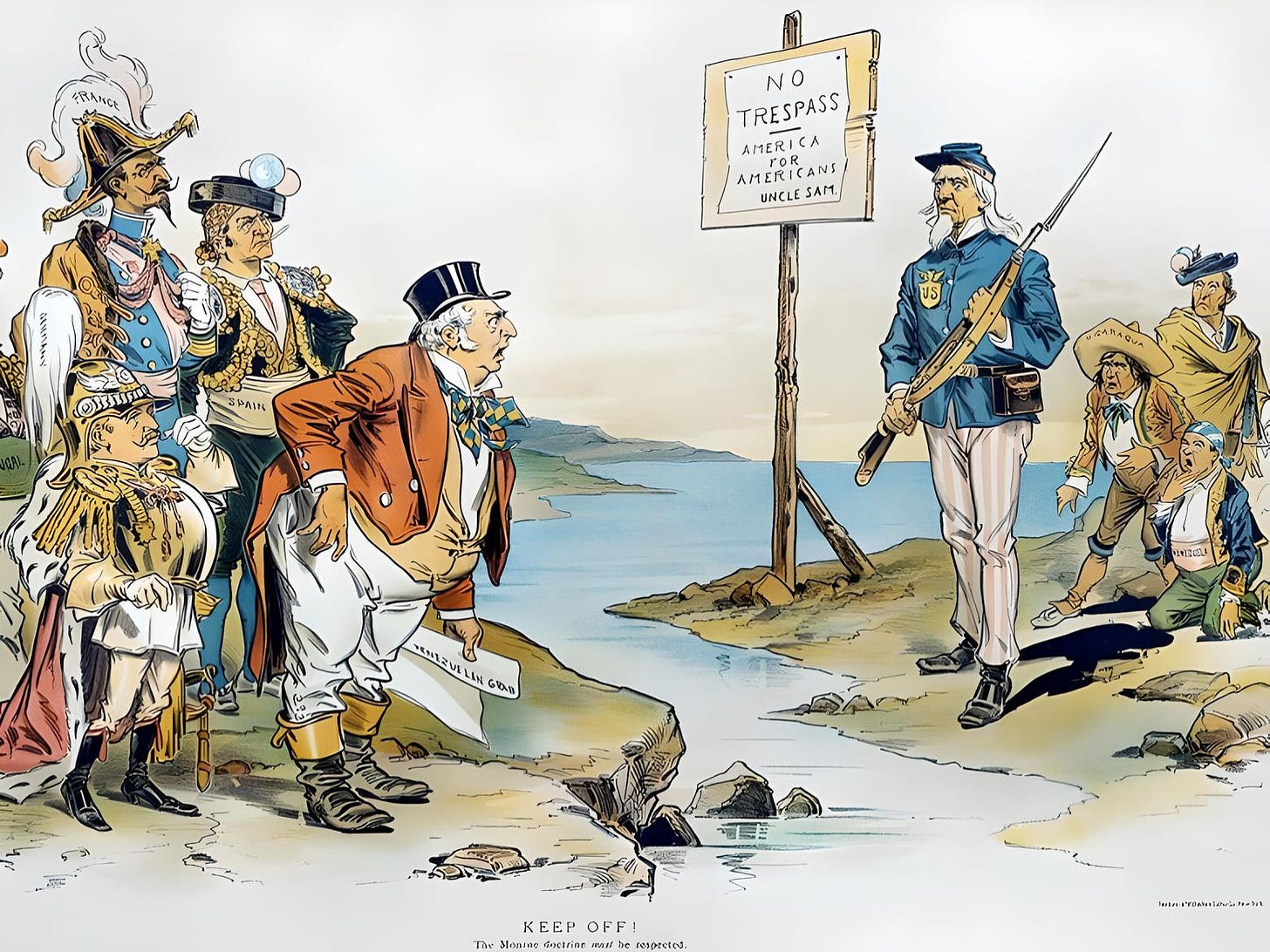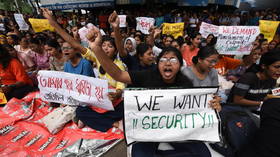Sunil Sharan’s India’s Muslims and Lessons for the West

Sunil Sharan (Image source: RosettaBooks)
2,603 words
I can date my study of British politics quite precisely to a few days after 9/11. I heard a Muslim woman on the BBC’s Today program, sounding very pious and concerned about something which has become a regular Islamic stratagem following any terrorist attack: the danger of an “anti-Muslim backlash.” This is designed to engineer the sympathies of the listener, and the problem, she informed us, is that so many non-Muslims don’t know anything about Islam. My own reading was meandering down various dead-ends at the time, and I decided to take her implied advice and learn more about the religion, as we were told after 9/11, of peace.
Since then, I have read dozens of books and articles on the subject, as well as the Qur’an and the Hadith, and I am familiar with The Reliance of the Traveler. Eight years ago I left England for Costa Rica, and the reason I am still here — freer to write than I would be in the United Kingdom due to this country’s constitution — is the same as it was when I arrived: I have no wish to live in an increasingly Islamized country. J. D. Vance’s recent throwaway line about the United Kingdom was downplayed as a joke, but the next Vice President of the United States wasn’t joking.
Thus, a book titled India’s Muslims and Lessons for the West was bound to get my attention. I have a rough grasp of the formation of the Arabic world, but none on Islam in India, and the partition of that country to include Pakistan. I must thank Baron Bodissey at the website Gates of Vienna for putting me in touch with the author after I read an excerpt there, and the author himself, who sent me the manuscript immediately on request.
Similarly to the Danish raids on Britain around the turn of the first millennium, Muslims began invading India in the eighth century, “mainly to plunder, spread their Islamic faith, and then retreat.” Afghanistan was up for grabs, religiously speaking, and had passed from Hinduism through Buddhism and finally to Islam. My first awareness of these struggles came just before 9/11 in Canada, when I read a piece in the The Globe and Mail about the Taliban’s destruction of the Bamiyan Buddhas, huge statues of Gautama Buddha dating from the sixth century. This destruction of anything dating from the time before Mohammed, the jahilya, is regular Islamic practice, and noted by the author.
Afghan Islamization enabled Muslims to make a permanent incursion into India, an invasion previously impossible as the Arabic world was too distant. The Afghans became less transitory in their excursions into India, and ruled India for 300 years starting from the thirteenth century, a domination halted not by the Hindus but by the Mughals, Central Asians of Mongol descent. Although Mughal rule from the sixteenth century until 1857 saw improvement “in terms of administration, the economy, and in particular, architecture,” this period laid in place the tensions the author, a Hindu at the time of writing, describes as present today.
Islam used the Hindu caste system strategically, targeting the “untouchable” lower caste for conversion. Something analogous can be seen in modern Britain, with blacks and disaffected young whites beginning to convert to Islam, particularly in prison. (The author, himself from the baniya, or trading caste, describes the peer-group pressure he felt in the US from Muslims trying to persuade him to convert.) Muslims saw that the lowest caste could be portrayed as oppressed — another familiar theme today — and turned them against their Hindu rulers. By the turn of the twentieth century, a quarter of India was Muslim, although under British rule “mass proselytisation to Islam had stopped” and the Hindus regained ground. Muslims became concerned about the prospect of a democratic India in which they cohabited peacefully with Hindus, and Gandhi reluctantly allowed the two-state solution by which India was partitioned and Pakistan created.
There are Hindus in Pakistan, and they face persecution. In India, meanwhile, Muslims are outpacing Hindus demographically, which Europe has as part of its future. There is also the intrusive, disruptive attitude of Muslim immigrants the West is only just beginning to realize. “Many Hindus,” writes Sharan, “are firmly convinced that wherever Muslims are found in the majority, they do not let religious minorities live in peace.” This is the lesson Britain is currently sitting through, on a local level at present but expanding as Britain’s micro-caliphates link arms. Shariah has been in place among Indian Muslims since 1947. It is already de facto in place in many British, Muslim-dominated areas. The author notes that Dr. Rowan Williams, an ex-Archbishop of Canterbury and thus a part of the virtual welcoming committee the Anglican Church has become for Islam, supports Islamic demands for their own legal system. The push for shariah, sanctioned or not, exemplifies a word which recurs wherever Muslim arrivistes begin to gain footholds in a new territory; tension.
Although the tensions between India and Pakistan over the disputed Kashmir region are well documented, however, the tensions within India between Muslims and Hindus are at least offset by some cultural symbiosis. The world-famous Taj Mahal, for example, “is a Muslim monument, but if you see carefully, its structure is more Hindu than Muslim.” But Muslims are also destroyers of cultures they come across in their quest for theological lebensraum, as with the Bamiyan Buddhas. This uneasy stasis is clarified by Sharan, with several approving references to Mahatma Gandhi, who was “killed by Hindu extremists because he took up the cause of India’s Muslims.” Tolerance, in the face of Islam, can be fatal.
Against this historical backdrop, Sharan’s book is a personal account as well as an objective history. The author is both an experienced journalist and well-traveled in the Western world. Religious travelers do not, however, travel alone, and the author’s Hindu perspective via the personal nature of his account is no mere tale of exotic gods, spices, and festivals. Hinduism demands a rather more hands-on attitude from its young men:
A true Hindu, wherever he lives, will never accept burial. Since childhood, Hindus are told that they will be cremated, with their head smashed on the pyre with a pole by their eldest son. I am the second of two sons, and I was allowed to hold aloft the staff to break my father’s head.

You can buy Mark Gullick’s novel Cherub Valley here.
Many Hindus do indeed believe that the head must be cracked open after death to allow the escape of the soul.
The author has lived and worked in France and Germany, and devotes separate chapters to these two countries, central as they are to Europe’s Islamic problem. France is becoming increasingly unstable due to its immigration policies, and its willingness to offload its migrant overspill to England is to its advantage. Migrants landing on the beaches of Kent are trying to get to England, not Britain, and if that is not possible they use the country as a way-station to Ireland, and the safety zone of the European Union.
But the French, with the Olympic Games about to start at the time of writing, is a nation practically under martial law due to the Islamic threat to proceedings, and the author relates his experience as well as the history of Islam in France.
Muslim immigration to France began at the turn of the twentieth century for the usual reason: the importation of a cheap labor force to do the jobs the French did not care to do — which is a lot of jobs, from my experience of the French. As the century progressed, so did Islamic demands in their new home. The author informs us that “[t]he French car company, Renault, hired so many Muslim immigres that, in a spirit of accommodation, they installed prayer rooms for them in their factories.” This is now common practice in businesses across Europe.
Another practice uniformly observed is Muslim hatred of their adoptive countries. The author seems to suggest that the France of “the leafy suburbs and the fine shops and the good schools” is somehow closed to Muslim immigrants, and instead they are crammed into “the projets in the exurbs of Paris and other French cities, those drug-addled, crime-infested, poor-civic service buildings that are the lot of most immigres to France” as into ghettoes. This allocation, however, should be expected, and there is no compulsion to make a slum of tower blocks, unpleasant as they may be. Hatred of the kufr certainly helps to excuse Islamic dysfunction in France’s major cities.
Germany created its own problems long ago, and its policy of importing a foreign workforce served only to provide a template for the future invasion of the nation which has caused Europe the most trouble historically and shows no signs of changing:
Germany imported most of its gastarbeiters (guest workers) from Turkey in the sixties. She [ex-German Chancellor Angela Merkel] went on to add that Germans kidded themselves, that they had expected the Turks to leave but that they chose to stay in Germany.
There was never any German colonization of Turkey, as Sharan points out. The Germans were victims of their own mental laziness (in contrast to their renowned efficiency), and the desperation of many Turks to escape their own particular enclave of Islamic dysfunction looks obvious in hindsight.
The British Empire, as one might expect, does not find favor with the author. “The Brits kid themselves that they made immense contributions to India,” the author writes, although he does acknowledge one benefit of the Raj, that they “flattened” the increasing dominance of Islam in India:
A hundred and fifty years of British rule had actually proved to be a blessing in disguise for the Hindus. Mass proselytization to Islam had stopped. The Hindu population actually grew healthily during British rule. Many Hindus such as the philosopher Aurobinda Ghosh in fact regarded the British as their protectors against the Islamists.
Now, the British can’t even protect themselves.
The question of imperialism is very much alive in Britain at present. Personally, I think that retrospective morality is philosophically illegitimate, and the history of colonization would be better informed not by reading Rousseau or Kant, but Lao Tzu or Bismarck. Products of colonized countries — and it is only the British Empire which comes under fire for this — will understandably hold grudges, but using morality to unknot the problem is the wrong tool for the job.
Americans are always surprised to be told they are an imperial nation. We fight wars over there, they will say, but we don’t stick our flags in the ground (with the notable and photographically famous exception of Iwo Jima). But America’s empire is cultural, as Guillaume Faye recognized, and this makes it not an enemy of Europe but certainly an adversary.
The author is bittersweet about his time in the US:
As a minority in the toxic racist environment that I find myself in the United States today, I can only sympathise with India’s Muslims. I am a blackie, a Third Worlder, a Hindu in the US. As the Americans would say, I have a lot of strikes against.
With Afro-American blackness loudly “trending” in the US, Hinduism is not a sympathetic cause. Sharan makes the point that Kamala Devi Harris plays up her blackness and keeps a discreet veil over her Hindu background via her mother, Shyamala Gopalan. Ms. Gopalan met her father in an Afro-American Association at UC Berkeley, and was admitted to this black study group by virtue of being a “person of color.” Now that there is at least a possibility that Harris will be the next President of the US, her privileging of her black ancestry over her Hindu lineage seems an effective career move. If she is dropped from the ticket at the Democrat Convention in August, a lot of black women will not vote for a white replacement.
The author is certainly aware of one lesson the West is only just beginning to learn, that when a nation imports Islam, it brings with it its own internal, factional squabbles:
Forget about Islam and other religions. The rift within Islam itself, between the Shia and the Sunni, is the most internecine in the world.
The mutual hatred between Sunni and Shi’a Muslims is every bit as bitter as that between Northern Ireland’s Catholics and Protestants, although both sects in both cases share a common deity. This is one of the great mysteries of Islam, and it hampers the objectives supposed to be common to the ummah. Sharan writes that “Islam has no single spiritual leader like the Pope,” but perhaps they ought to consider installing one, because a successful pan-Islamist movement would make Islam stronger, not weaker. The internecine warfare noted, once Islam has registered a significant presence in a European nation, also plays itself out on the streets of that nation, to the detriment of the natives.
As a history of Islam in India, this book filled in an information gap, as noted. As a personal account, although it is far from partial, it is also even-handed. I finished the book assuming that the author remained of the Hindu faith, but at the end of an afterword about Mr. Sharan, we learn that in 2021 he published a book detailing “how he came to Christ.” It would be interesting to see his viewpoint once his old religion is objectified from the standpoint of his new Christian belief. Also, I wonder if he might answer a question for me.
After India’s independence in 1947, Gandhi made Jawaharlal Nehru the country’s first Prime Minister. I have heard a story that I wonder if the author could confirm or otherwise. Asked by a reporter whether he agreed that Gandhi’s poverty was admirable, Nehru replied that it cost a lot of money to keep Gandhi in poverty. I have often wondered if this is fake news.
The book ends on a rather accusatory if ambiguous note, with Judeo-Christianity upbraided, as “The people of the Books are doing the world no favors” in not bringing the 1,000-year conflict between Islam and at least nominal Christianity to a close. Sharan asks, “What can India teach the Western world?”
If Muslims rule your country they will not break you. Or when they are relatively small in number, as they are in India today. But the minute they find themselves up to a big critical mass, and if they are not ruling over that land, then they want a separate land for themselves to lord over.
Islam certainly does not break the countries it invades. It requires the superstructure already put in place by the kufr, and if proof of Muslim cultural appropriation is needed, I imagine 9/11 will suffice. Islam’s aim is conversion and the levying of jizya tax on the indigenous people of the countries it invades by stealth. India’s Hindus remain in a tense standoff with Islam, both over Kashmir and within the undisputed borders of India. Squabbles over whether pigs or cows should not be eaten are one thing, but the levers of power and who controls them are quite another. Islam in Britain — and I am originally from London — is gaining both political leverage and the power to invade public spaces with impunity. At what point will Muslims feel that critical mass has been reached? Whether the future of Europe is as a bloc of nation states whose citizens live in an uneasy and fractious state of disharmony with its aggressive arrivistes, or it can stop Islam as it did at the gates of Vienna in 1683, is in the lap of the gods — whoever’s deities they might be.



